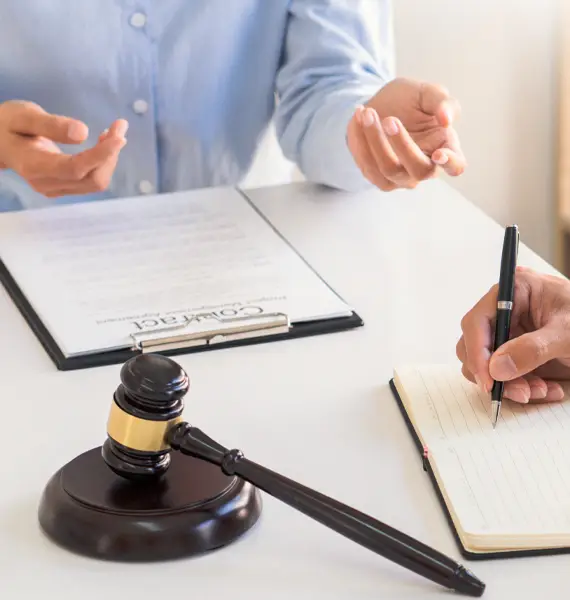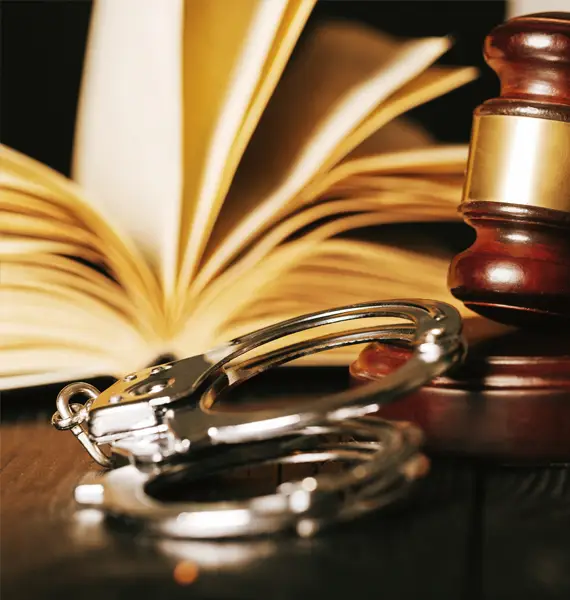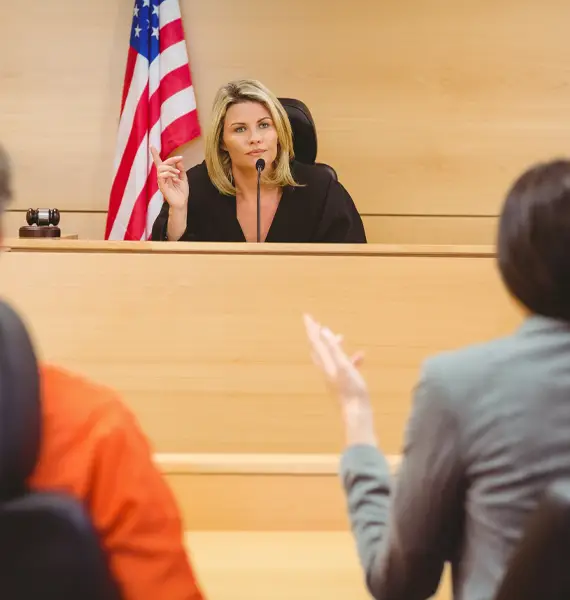Legal troubles in Collinsville can be overwhelming, whether you’re defending yourself against criminal charges or navigating the challenges of divorce. At The Law Offices of Robert Elovitz, we bring decades of trial experience and thorough knowledge of Illinois law to safeguard your rights, your future, and your family. With more than 35 years of proven results, our practice offers relentless advocacy in criminal defense and compassionate guidance in family law matters.


Aggressive Defense Strategies for Serious Charges
An arrest in Collinsville or anywhere in the surrounding area can threaten everything you’ve worked for—your reputation, job, and even your liberty. At The Law Offices of Robert Elovitz, our criminal defense attorneys know how to dismantle the prosecution’s case and pursue the best possible outcome. Whether you’re dealing with a misdemeanor, a felony, or a federal charge, we use time-tested strategies to defend your rights.
Why Clients Trust Our Firm
Client Review:
“Robert and his team were incredible. They handled my felony drug case with professionalism and fought hard to get the charges reduced. Their communication kept me informed, and I felt supported every step of the way. I highly recommend this criminal Lawyer to anyone in Madison County.”
Federal Offenses
Charges such as wire fraud or drug trafficking require sophisticated defense. We analyze every statute and challenge procedural errors to safeguard your rights in federal court.
Drug Crimes
From possession to distribution, we challenge the evidence—whether it’s the validity of a search or the accuracy of lab results. We work strategically to minimize or dismiss charges whenever possible.
Weapons Offenses
Facing firearm-related accusations like unlawful possession or aggravated discharge? We scrutinize every detail of the state’s evidence to protect your record and freedom.
Domestic Violence
Allegations of battery or violating an order of protection can cause long-term consequences. We deliver strong defense paired with compassionate guidance to make sure you’re treated fairly in court.
Sex Offenses
Cases involving allegations such as child pornography or sexual assault are defended with sensitivity and determination. We challenge forensic findings, testimony, and procedural flaws to protect your reputation.
Violent Crimes
From aggravated battery to arson and homicide, we take on the most serious charges with strategic, evidence-focused defense. Every aspect of the case is investigated to challenge the prosecution’s narrative.

Theft & Fraud
Accused of shoplifting, burglary, or financial fraud? We examine digital evidence and witness testimony to challenge inaccuracies and reduce penalties.
DUI & Traffic Violations
We fight to protect your driving privileges by challenging traffic stops, breathalyzer tests, and field sobriety results. Our defense reduces the risk of fines, jail time, or license suspension.
Misdemeanor & Felony Defense
No matter the charge—from disorderly conduct to involuntary manslaughter—we craft tailored defenses to protect your future.
Juvenile Defense
We advocate for young people accused of crimes in Collinsville, focusing on rehabilitation and second chances rather than harsh punishment.
Traffic Offenses
Even minor violations can add up to costly penalties. We handle everything from seatbelt tickets to fleeing and eluding charges with the same attention to detail.
Client Review:
“Attorney Elovitz saved me from a tough situation. After other attorneys let me down, his team took on my case and delivered results. If you need a criminal defense attorney in Madison County, Robert is the one to call!”

Compassionate Guidance Through Difficult Times
Divorce and family disputes can be emotionally draining. At The Law Offices of Robert Elovitz, we provide steady guidance and strong advocacy to help families in Collinsville find fair resolutions. Whether your case involves child custody, property division, or spousal support, our firm focuses on protecting what matters most—your family and your future.
Why Families Choose Our Firm
Client Review:
“Rob and his team were a lifeline during my divorce. They explained every step, listened to my concerns, and fought for a fair settlement. Their support made a tough process manageable. I’m grateful for this divorce lawyer in Madison County.”
Contested Divorce Representation
When couples cannot agree on property, custody, or financial matters, we are prepared to litigate aggressively while also exploring mediation options to ease stress and costs.
Alternatives to Divorce
Our firm also assists with mediation and legal separation, offering solutions for couples who wish to resolve disputes without a full divorce.
The Value of Experience
With more than three decades of practice, Attorney Robert Elovitz blends sharp litigation skills with effective negotiation to deliver results. Serving Collinsville and the surrounding area, our office provides criminal defense and family law representation tailored to your circumstances.
Get Legal Help Today
Whether you need a defense attorney for criminal charges or a divorce lawyer to handle family law disputes, The Law Offices of Robert Elovitz is here for you. Call today for a free consultation in Collinsville, IL.
